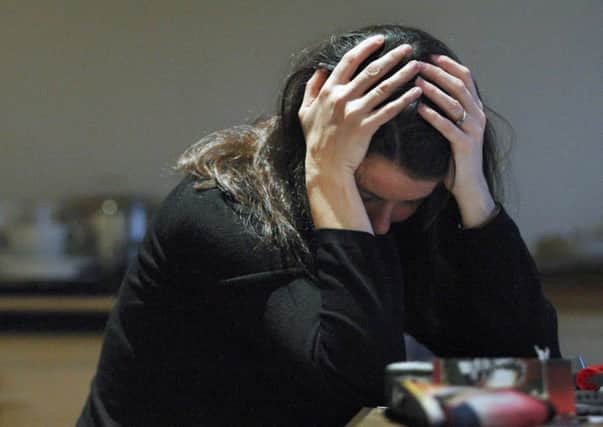Health workers ‘failing to act on signs of domestic abuse’


A study by domestic abuse charity SafeLives - formerly Co-ordinated Action Against Domestic Abuse - found that within a three-year period some women will suffer more than 50 incidents of violence.
More than 85 per cent of victims are in contact with professionals - on average five times - in the year before they get help, the research found, and almost a quarter of victims at high risk of harm go to an accident and emergency department because of their injuries - some as many as 15 times.
Advertisement
Hide AdAdvertisement
Hide AdSafeLives has urged professionals such as GPs, midwives, social workers, police and A&E staff to ask about domestic abuse every time they are concerned in order to get families help sooner.
In the last year before they get effective help, three-quarters of victims reported abuse to police.
Diana Barran, SafeLives’ chief executive, said: “This is yet more shocking evidence that we could stop domestic violence far earlier than we do. Every conversation with a professional represents a missed opportunity to get victims and their children the help they need.
“Time and time again no one spots domestic abuse, even when victims and their children come into contact with many different public agencies. It’s not acceptable that victims should have to try to get help repeatedly. This leaves victims living in fear and danger - and risks life-long harm to their children.
Advertisement
Hide AdAdvertisement
Hide Ad“Every professional should help victims feel safe enough to say what is really going on at home. That’s why we’re calling on every professional to ask about domestic abuse, every time they’re worried - and to know the right thing to do if victims tell them.”
Women who have worked with victims have identified training for GPs and their staff as a priority.
Karen Ingala Smith, of the campaigning charity nia, says domestic violence victims are over-represented in the numbers of women visiting GPs.
But rather than telling their GP, victims are more likely to report gynaecological problems, anxiety, depression or sleeping problems.
Advertisement
Hide AdAdvertisement
Hide AdThe charity is part of the IRIS partnership which improves training for GPs and ensures staff have a specialist women’s services contact.
The IRIS service has been commissioned in 19 English local authorities. None are in Yorkshire.
As of July last year, 301 general practices had received IRIS training and over 1,500 women referred for support.
GPs and are taught to ask sensitively - and sometimes repeatedly - about domestic abuse.
Advertisement
Hide AdAdvertisement
Hide AdReviews of domestic homicides have identified health services as a “weak link” where women were either never asked the question or services were aware but did not share the information or find specialist services, says Ms Ingala Smith, who has spent much of her career in West Yorkshire and is now based in London.
“Stopping domestic violence cannot simply be about providing better services,” she said.
“The problem is men’s violence. We need to look at the root causes. Until we do that, we need well-funded specialist services.”
Joan Taylor, of Calderdale-based charity White Ribbon Campaign, said: “We are asking men to stand up and speak out against violence against women and girls.”